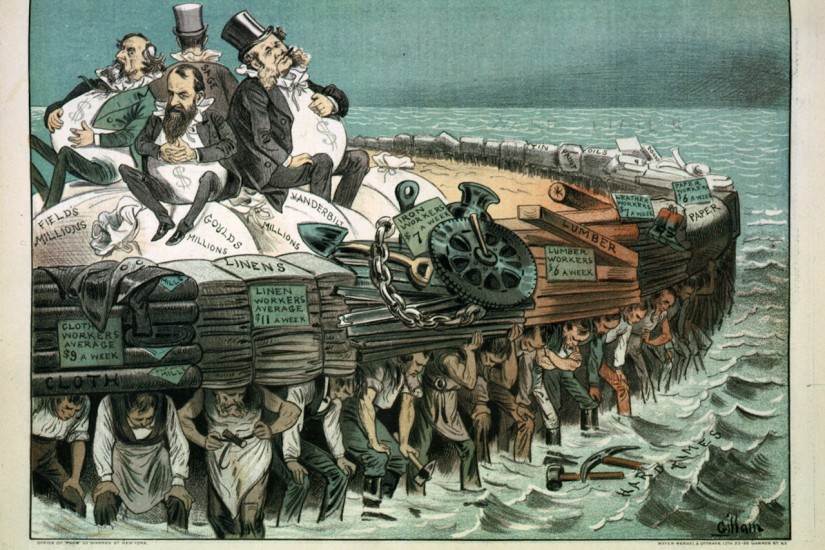There are similarities between Gilded Age America of the late-19th century and the United States today. In the past, the country was divided along economic, ethnic and racial lines. The majority of people distrusted and resented corporations and the wealthy one-percenters who controlled them, technological advancement changed life at breakneck speed, and enterprising entrepreneurs made constant headlines.
But instead of the likes of today’s Bezos and Mark Zuckerberg, in the mid-1880s, it was Gould and John Mackay. Their exploits teach us that the United States must be zealous in regulating these ever-growing corporate behemoths, lest American consumers be left at the whims of media moguls — some of whom will keep the public interest in mind, but others of whom will freely harm the public to make a buck.
Gould rose from obscurity with nearly two decades of ruthless Wall Street buccaneering and corporate speculation, often operating outside moral bounds in a fashion that made him the most hated and feared man in the United States. In February 1881, Gould seized control of Western Union, the company that controlled nearly 90 percent of the domestic telegraph business in the United States. Gould then held sway over an empire built on three interconnected pillars: railroads, newspapers and the telegraph.
Rival businessmen panicked. They were certain Gould read their private dispatches, employed code-breakers to unravel their ciphers and delayed information flows so he could read news before anyone else.
Newspapers lived in particular terror of Gould’s clout. Their business depended on stories cabled home by far-flung correspondents. By delaying, misrouting or losing their traffic, Gould could crush them entirely. Compounding their agonies, newspapers had no choice but to pay the exorbitant rates charged by Gould’s Western Union.
Thanks to their reliance on his companies, lily-livered newspapers refused to publish anything inimical to Gould’s interests — and with good reason. Broadsheets with more courage spoke out in favor of telegraph reform, and suddenly stopped receiving timely communications. Gould exercised his power at every opportunity.
And many Americans came to see Gould’s far-reaching influence in politics, the courts, communications and the media as a threat to democracy itself. The public reeled as courts handed down a seemingly endless succession of Gould-corrupted decisions.
